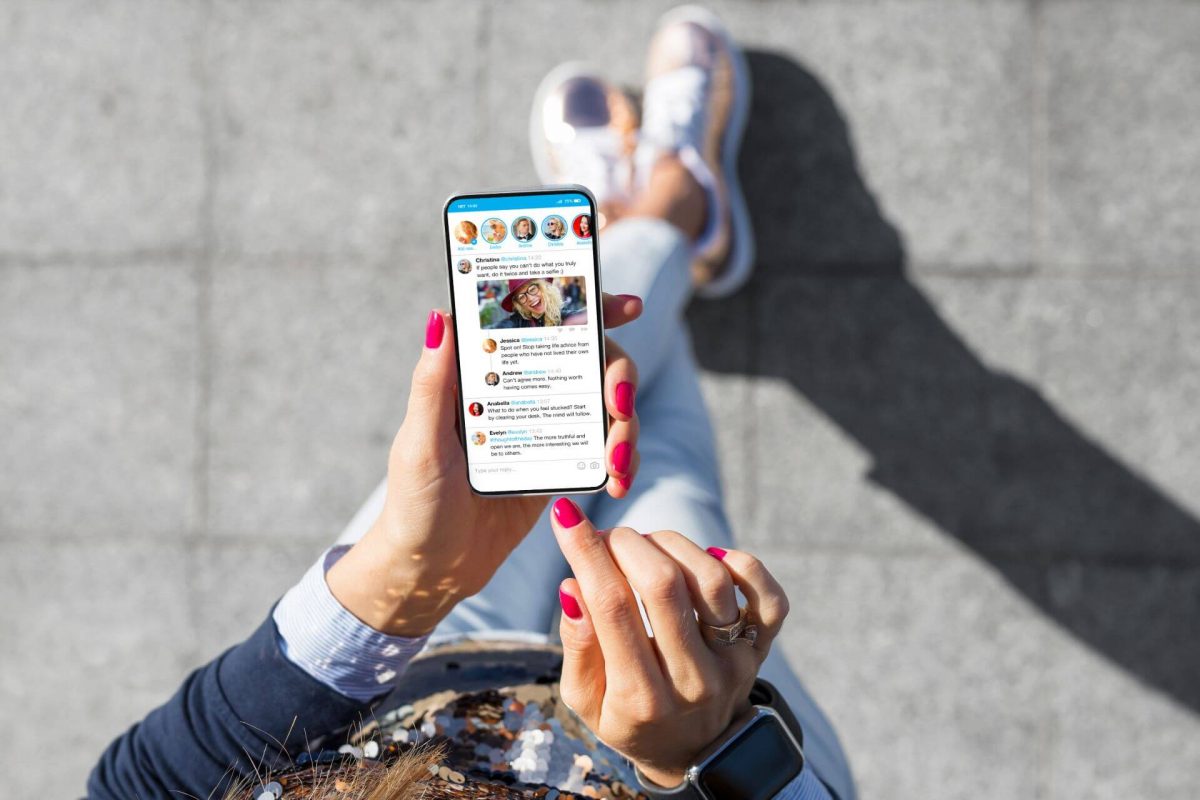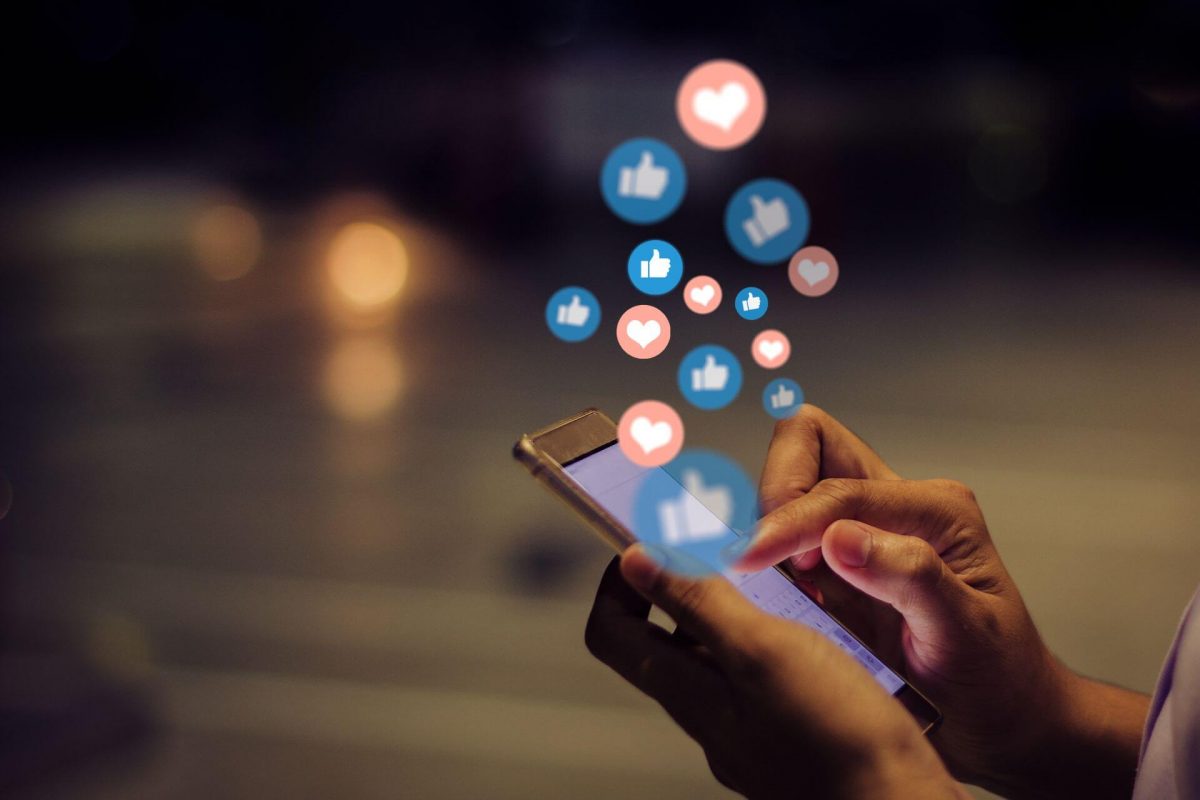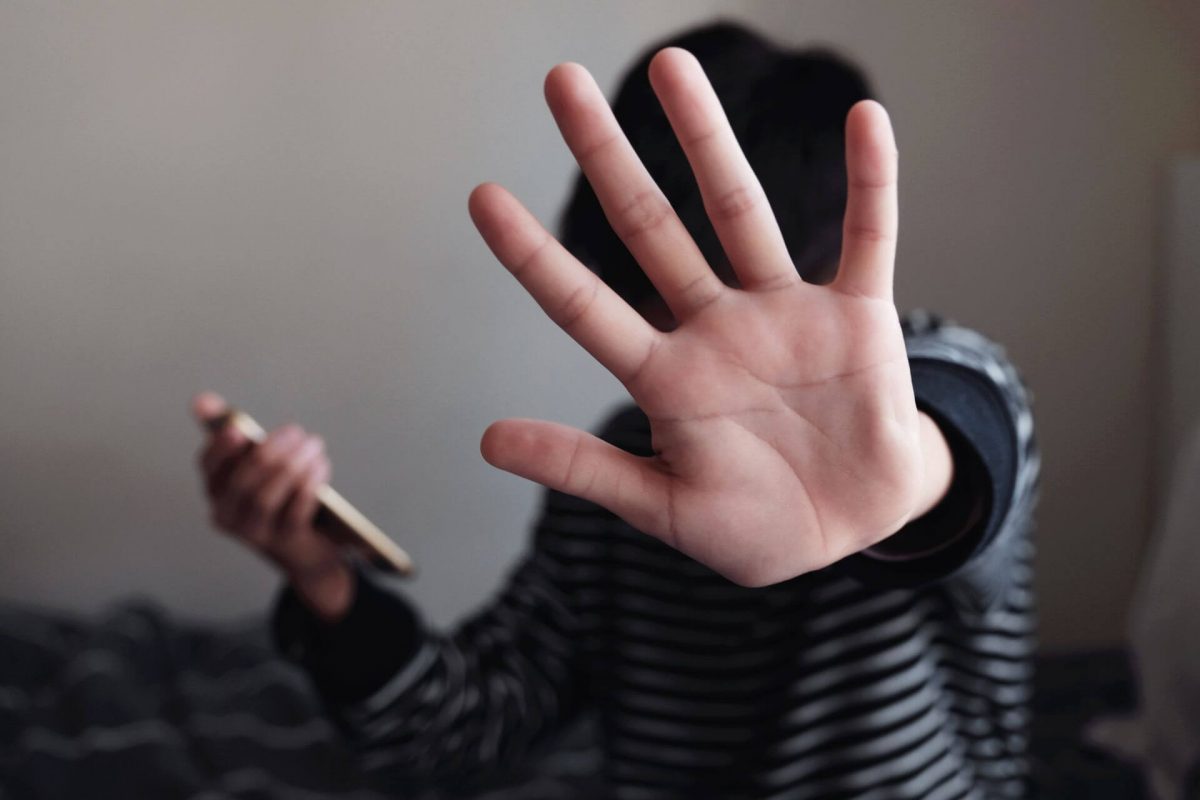In recent years’ studies have shown that social media sites have a detrimental impact on our self-esteem.
Social networking sites like Facebook, Instagram, and Twitter, as fun as they can be, can also affect social media users’ confidence to a significant degree.
Frequent social media use

Surfing social media platforms like Instagram or Facebook helps us stay connected to the people closest to us. When we scroll through news feeds, we get automatically exposed to the lives of others, what they are doing at that moment, and their location.
But are people’s social media lives an accurate depiction of reality? For example, do they feel happy in the way that Facebook or Snapchat portrays?
Likely not.
Low self-esteem
Research suggests that Facebook users or those who use other social media platforms instead of in-person interactions are more likely to experience mental health problems.
They are also more likely to have issues with low-self esteem as social media sites like Tumbler, Pinterest, and those already mentioned gear the subconscious to compare.
Comparing oneself
Face-to-face interactions have become less intimidating over the years because the emergence of social media platforms has resulted in picture-perfect bodies and a filter-fest of airbrushed people who set unrealistic standards for the majority.
Upward Social Comparison
People who post pictures online often think about their negative self-image compared to the seemingly perfect image of others, as the subconscious comparison chemicals take over.
When people are looking at their friends’ highlight reels or picture-perfect posts, it can often make them question their self-worth, regardless of how unrealistic ‘’real-life’’ social media can be.
Depressive symptoms
Research conducted by the American Academy of Pediatrics on social media usage came up with a phenomenon called ”Facebook depression.”
All this is where people show clinical signs of depression after using social media sites. Users may not always be aware of the effects of increased social media usage, particularly on their self-confidence, but they are certainly there!
Self-esteem -social media

Clicking through peoples’ holiday pictures or reading about their success online can make us look at our own failures with microscopic accuracy.
Scrolling through our friend’s news feeds gives us automatic exposure to their lives that perhaps we wouldn’t have in real life.
It is also easier to portray a much happier image of who we are online since we have so many tools at our disposal!
From Insta filters to airbrushing apps, it appears that social media has made a celebrity out of us all.
Negative effects
Often, people make judgments of others based on their social media presence rather than reality. Think of how often you have found yourself scrolling a friend’s Facebook status and thought, ” wow, she has a lovely house” or ”that couple look so happy”.
The negative impact of all this can be substantial since our efforts of buying a house or finding that perfect guy or girl don’t seem to stand up in comparison!
Mental health issues

Other studies around social media impact reported rising rates in negative body image and eating disorders. In addition, young people are at increased risk of being more self-conscious about their body weight after being online.
Research suggests that the age group more at risk of body weight issues due to social media usage is between 18-40.
Social media and self
Studies show that 51% of people felt more conscious about their weight after spending hours on Facebook, and over a third of people wanted to change specific body parts.
Anxiety and envy
Many reports show that young people and teens, and even people in older age groups, often admit to feelings of envy and anxiety after being active on social media.
Social networking sites
The benefits of being ”Facebook popular” can make us feel great at that moment. The large quantities of social media ”likes” and post comments can make us feel accepted, which unfortunately has become crucial to our self-esteem and confidence.
Social media allows us to connect with people from the comfort of our office or living rooms without having to spend a lot of energy. We can even alter our personality according to what we think people want to see and hear.
Upward social comparison and self-worth
We are only as good as our last social media post, and the reality is, there will always be someone out there who is more popular and more successful.
This social comparison leaves many people feeling empty and depleted, and it can take a while before they build confidence enough to feel accepted again.
Human behavior
Experts have studied the role that social media platforms can have on peoples’ mental health and self-confidence. A recent study reported the role that Facebook plays in our happiness. The reports were astounding!
Social psychology
Over a third of users report mental health issues such as low self-esteem and unhappiness following their recent Facebook experience. Some of the primary emotions that individuals experienced were:
- Frustration
- Exhaustion
- Envy
This upward comparison with social media users is not only synonymous with Facebook but other social media platforms such as Tumblr, Pinterest and Instagram.
We’re here to help
Let’s talk
Call now for a totally confidential, no-obligation conversation with one of our professionals.
Sounds unhappy
When people scroll through their news feeds, it can often suppress their social skills since the new way of socializing is mostly through gaining a certain amount of ”likes” and picture comments.
For example, in pre-social media days, people would have to meet up for coffee or visit a friend’s house to talk.
Nowadays, all it takes is a quick swipe, or a ”thumbs up” emoji to show up and support our friends and family members.
Social media use
Through social media, our lives are not always accurately depicted. The smokescreen of filters and posting only the best ”picture-perfect” snapshots and scenic backgrounds makes most people think they are missing out.
FOMO
The reality is that our FOMO (fear of missing out) often tells us lies! All this is not surprising since people mostly only post ”happy, smiley” pictures of themselves. However, it may be helpful to remind yourself that most of us only save the joyous moments for social media.
Essentially, the picture getting painted on Facebook and other social media platforms alike is rarely accurate. There are various shades not being added.
We’re here to help.
Contact us today if you’d like a confidential and free chat with one of our highly-trained mental health and addiction care professionals at White River Manor in South Africa.

